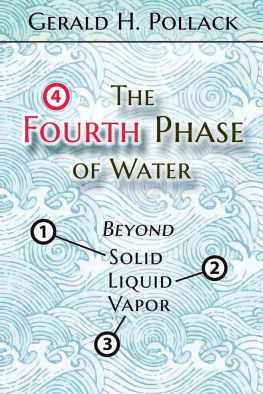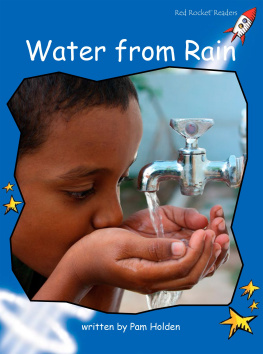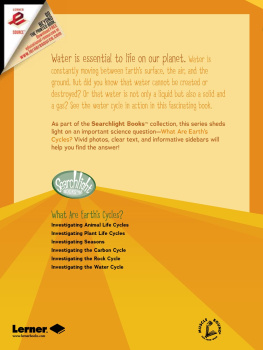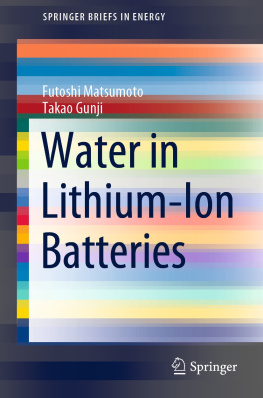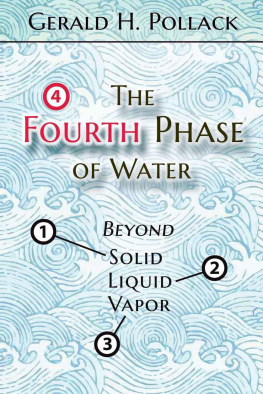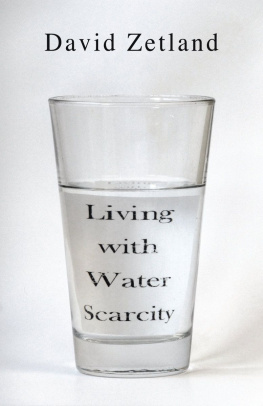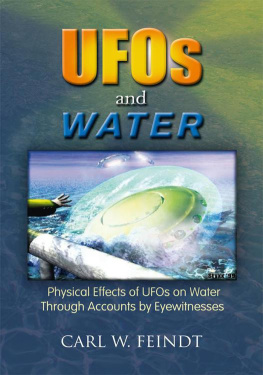This ebook is protected by copyright.
No portion of this ebook may be copied, reproduced, or used in any manner whatsoever without the express written permission of the publisher.
This ebook is for your personal use only. Please do not distribute unauthorized copies of this ebook to others. Thank you for respecting the rights of the author and publisher.
THE FOURTH PHASE OF WATER
BEYOND SOLID, LIQUID, AND VAPOR
GERALD H. POLLACK

EBNER & SONS PUBLISHERS
EBNERANDSONS.COM
SEATTLE WA, USA
The most interesting science book Ive ever read. It has shown me that its still possible to establish something genuinely new in science. Zhiliang Gong, University of Chicago.
The most significant scientific discovery of this century. What strikes me above all is the elegant simplicity of [Pollacks] experimental approach. Many of the experiments can be done on the kitchen table, and you dont even need a microscope to see the results. Mae-Wan Ho, Author, Living Rainbow H2O; Director, Institute of Science and Society, London.
Dr. Pollack is one of the pioneers in this field, and his discoveries can be expected to have important implications. Brian Josephson, Nobel Laureate, Cambridge University.
Fantastic material with revolutionary insights. What impresses me most is that the experiments are visually instantly accessible. Helmut Roniger, Consulting physician.
I blame Pollack for my chronic loss of sleep during the past week. Devouring his book has inspired in me a whole new burst of enthusiasm for science. Jason Gillen, Massage therapist, Sydney Australia.
The most original thinker I have ever met. Csaba Galambos, University of Colorado.
Einstein has got nothing on Pollack. Pollack has the uncanny ability to pinpoint the right questions and grasp the simple ideas. Capt. T.C. Randall, Author, Forbidden Healing.
This is like getting new glasses! The clarity is astounding. Charles Cushing, Independent Scientist.
Unputdownable. Nigel Dyer, University of Warwick, UK.
As good a page-turner as a Dan Brown novel.... this book has a folksy style that I know will be very popular. David Anick, Harvard University.
By Chapter 5 I was spellbound. By the end I was so captivated by the implications that I wished I could begin again in science and follow the new path this work has shaped. Kathryn Devereaux, Science writer, UC Davis.
With balance and grace, Pollack seems to have come closest to presenting a unified field vision of matter through the lens of water. John Fellows, Independent Scientist.
This amazing book has changed my understanding of all the processes going on in water which I was confident I knew about the understanding that dictated my many years of teaching and organized my research. I must now come to terms with the demonstration that water is not just a medium in which physics and chemistry happen, but a machine that powers and manages physics and chemistry. Martin Canny, Australian National University.
Brilliant! Read the last chapter first. Molly McGee, University of Washington.
Ever wonder...
What mysteries lurk in the depths of a glass of water? What makes the wispy clouds of vapor rising from your cup of hot coffee? Or the puffy white clouds hovering in the sky? Why do the bubbles in your pop get bigger the longer you wait? What keeps Jell-Os water from oozing out? Why does your tongue stick to something frozen? And why dont your joints squeak?
Questions such as those have remained unanswered not only because they have seemed complex, but also because they require that scientists pursue a politically risky domain of science: water research. Scientists trying to understand the social behavior of H20 do so at grave risk to their reputations and livelihoods because water science has suffered repeated fiascos. Water scientists have been virtually tarred and feathered.
Undaunted, one scientist has navigated the perils of water science by conducting dozens of simple, carefully controlled experiments and piecing together the first coherent account of waters three dimensional structure and behavior.
Professor Pollack takes us on a fantastic voyage through water, showing us a hidden universe teeming with physical activity that provides answers so simple that any curious person can understand. In conversational prose, Pollack relentlessly documents just where some scientists may have gone wrong with their Byzantine theories, and instead lays a simple foundation for understanding how changes of water structure underlie most energetic transitions of form and motion on Earth.
Pollack invites us to open our eyes and re-experience our natural world, to take nothing for granted, and to reawaken our childhood dream of having things make sense.
Ebner and Sons Publishers
3714 48th Avenue NE
Seattle, WA 98105
www.ebnerandsons.com
For quantity orders, please the publisher.
Copyright 2013 by Gerald H. Pollack. All rights reserved. This book is protected by copyright. No part of it may be reproduced, stored in a retrieval system, or transmitted, in any form or by any means, electronic, mechanical, photocopying, recording, or otherwise, by methods known or to be invented, without prior written permission of the publisher.
Library of Congress Control Number: 2012956209
Pollack, Gerald H., PhD
The Fourth Phase of Water: Beyond Solid, Liquid, and Vapor
ISBN Hardcover: 978 0 9626895 3 - 6
ISBN Paperback: 978 0 9626895 4 - 3
ISBN EPUB ebook: 978 0 9626895 5 0
ISBN PDF ebook: 978 0 9626895 7 4
9 8 7 6 5 4 3 2 1
Cover design by Ethan Pollack
Layout design by Amanda Fredericks and Ethan Pollack
Ebook conversion by Ebook Architects
Illustrated by Ethan Pollack
to Gilbert Ling
who taught me that water in the cell
is nothing like water in a glass;
whose courage has been a
continuing inspiration.
Acknowledgments
Like a child raised by a village, the production of this book evolved from the efforts of numerous loosely connected people.
Foremost must certainly be Gilbert Ling, whose monumental contributions first stirred my interest in water. Ling has been far ahead of his time. His pioneering work opened the eyes of many scientists to the realization that water is not merely a background carrier of the common molecules of life; it is a central player in all of lifes processes. Sadly, his many contributions have gone unrecognized, and his willingness to challenge science at its core has made him something of a pariah. From the time I first met Gilbert in the mid-1980s, he has continued to inspire me; if anyone is responsible for seeding the creation of this book, that person is Gilbert Ling.
Second in line: Vladimir Voeikov, of Moscow University. Few scientific subjects exist that Vladimir does not know a great deal about, and I must confess that many of the issues considered in this book began from conversations with him. His wide-ranging insights have broadened my peripheral vision. I thank him also for cooking up a series of marvelous Russian dinners during the time we were ensconced in a St. Petersburg apartment. The combination of pilmeni and vodka stirred the creative neurons to fire so rapidly that they could probably be sensed as far as Chicago.
As for the actual preparation of this book, Im indebted mainly to three people, listed in chronological order of their contributions.

